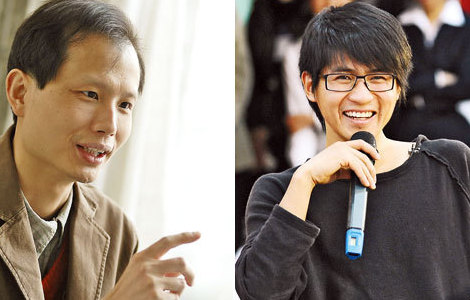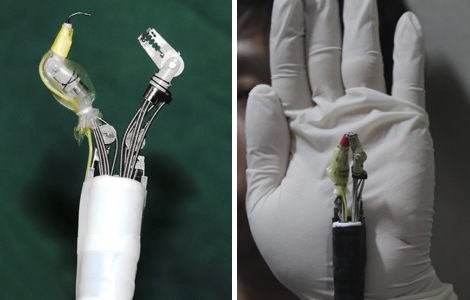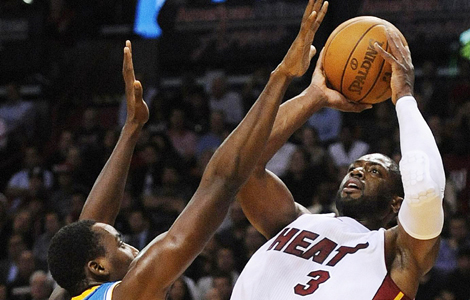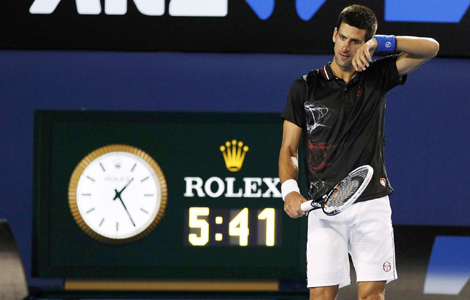EU hails China's culture growth
Updated: 2012-02-01 17:54
By Fu Jing (chinadaily.com.cn)
|
|||||||||||
Brussels has welcomed Beijing's strategy to boost its soft power by spreading its colorful cultures across globe after years of economic success, said a top European Union (EU)?culture official.
European Commission's Commissioner Androulla Vassiliou said culture plays an important part in achieving Beijing's aspiration of gaining more global influence and sharpening its soft power. In late 2011, China's highest leadership decided to make it a national development strategy for the coming years to build up its cultural strength and global influence.
Vassiliou, commissioner in charge of education, culture, multilingualism and youth, said China's international role has dramatically increased in the past decade, largely due to economic considerations and it is strengthening international ties and engaging in international discussion.
"Now, it is starting to envisage its role in the world as more than just commercial or economic. In this context, culture plays an important part," she told China Daily in an exclusive interview.
But Vassiliou said China should commit to respecting cultural diversity and boosting two-way exchanges. She expressed her views before the opening of the 2012 EU-China Year of Intercultural Dialogue, which was decided at the EU-China Summit in October 2010 by leaders of both sides.
Building on the 2011 EU-China Year of Youth, the Year of Intercultural Dialogue will promote not only cultural exchanges but also all forms of people-to-people contacts and international projects that contribute to mutual understanding in different policy fields.
Before the opening ceremony, China's Minister of Culture said the decisions to boost increased culture exchanges between China and the EU in crisis-era have shown courage and determinations of leaders of both sides.
"Nowadays, globalization is speeding up and both China and EU should go beyond political and economic cooperation and contribute to the human's future from cultural front," said Cai, who is in Brussels kicking off the EU-China Year of Intercultural Dialogue. The opening ceremony is scheduled on Wednesday night local time.
In a note seen by China Daily, Cai said China has attached great importance to cultural exchanges with other countries when helping bring a peaceful, stable, equal and mutual-trusting international surroundings.
"Though China and the EU hold differences and diversity in political system and cultures, dialogues and exchanges between different civilizations are useful in removing misunderstanding," said Cai.
China has already held a culture year in France and Italy and this year it will be held in Germany. "I truly believe politics, economy and cultures will increasingly become the three-pillars of Sino-EU relations," said Cai.
Vassiliou said both Beijing and Brussels acknowledge the significant role of culture in international relations and agree about culture's intrinsic values, such as its contribution to dialogue and mutual understanding.
"Awareness of Chinese culture will certainly grow as EU-China relations develop. Economic cooperation is not – and cannot be – the sole dimension of the EU-China relationship," said Vassiliou.
"That is why people-to-people contacts have been added to our strategic partnership. Cultural exchanges are at the heart of this new dimension."
When commenting on China's campaign to spread its cultural products worldwide, Vassiliou said films, books, music and other cultural products, as well as their creators and performers play an important role in the way nations perceive themselves and each other today's interconnected world.
"However, let me be quite clear: cultural products cannot be exported in the same way as we export cars or financial services. Hard-sell promotion campaigns do not necessarily deliver results," said Vassiliou. "In the cultural sector, the relationship between nations is crucial for creating interest, and therefore market opportunities."
She said the strategies should therefore be more based on cooperation and mutual respect, establishing links, partnerships and exchanges between artists, cultural professionals and institutions, as well as creative businesses.
Vassiliou said both China and the European Union are parties to the 2005 UNESCO Convention on the diversity of cultural expressions. This means that we both adhere to a vision of cultural diversity that aims at rebalancing cultural flows at world level.
Commenting on the trend that Chinese cultural companies and investors are prepared to go overseas to have their stakes in globally recognized cultural companies, the commissioner said that direct foreign investment is one aspect of international presence, and the EU is also a strong actor abroad in this respect.
"I do not believe that this can be the sum of an export strategy, far from it," Vassiliou. "In both our regions, cultural and creative industries have only recently been recognized as an important economic sector and are a growing market."
She said the objective of cooperation in this area is to create an environment that encourages business-to-business contacts, as well as new business opportunities and joint actions.
The same as Chinese complain that Europeans don't know much about Chinese cultures, Vassiliou said: "I would be very interested in knowing more about how European films, books or music are perceived by the Chinese public. Do Chinese people know about the huge cultural diversity that exists in continent? How much do they know about the European theatre or dance scene?"
She concluded: "I am convinced that Europeans and Chinese still know too little about each other. "So she said promoting more opportunities for contacts and a better understanding between China and EU will be an important objective of the EU-China Year of Intercultural Dialogue.
"Intercultural dialogue can only happen if both parties have the same access to the other's culture, so a two-way exchange is necessary to a real communication," said the commissioner.
Hot Topics
Kim Jong-il, Mengniu, train crash probe, Vaclav Havel, New Year, coast guard death, Internet security, Mekong River, Strait of Hormuz, economic work conference
Editor's Picks

|

|

|

|

|

|







